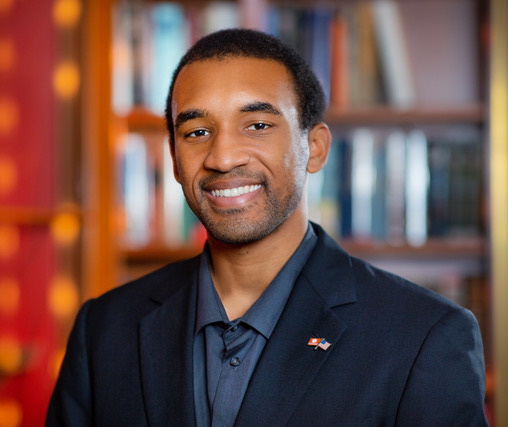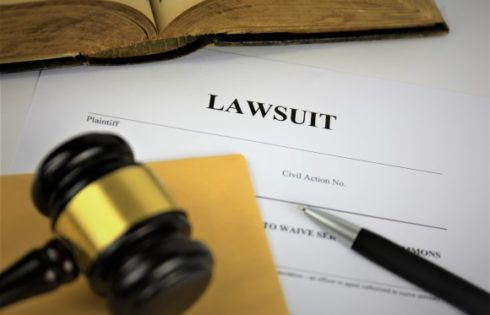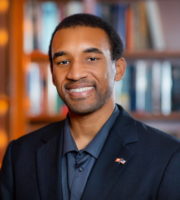OPINION: ‘Once speech can be limited in such subjective ways, more and more expression will be included in what is forbidden’
Emory Law School’s Student Bar Association recently refused to recognize a free speech debate group because open discussions may spark “harm” and potentially “give rise to a precarious environment.”
As an alumnus of Emory Law, the decision was especially disappointing — but not surprising — and thankfully, overturned.
But a similar instance of an Emory University group retaliating against protected free speech came in October 2020, during the first year of my attending Emory Law’s Juris Master program.
The Emory University College Republicans hosted Heather Mac Donald, a senior fellow at the Manhattan Institute and author of “The Diversity Delusion: How Race and Gender Pandering Corrupt the University and Undermine Our Culture.”
A “safe space” was established by Black and Latino groups at the university, seeking to “express their reaction to what McDonald had to say,” according to a post by the Emory NAACP.
A student government official at the university also went so far as to petition that the College Republicans be investigated for alleged “discrimination,” claiming that the group violated the student government’s Constitutional pledge to ensure “freedom from discrimination by any student organization.”
While I was unfortunately unable to attend Mac Donald’s speech, it disgusted me to learn about this controversial attempt to punish the group for hosting her lecture in what was a non-discriminatory, permissible exercise of free speech by a credentialed, well-respected scholar.
As I concluded the first year of my doctoral studies at Clemson University last April, another brazen attempt by students to shut down a conservative speaker occurred.
This time it focused on Tomi Lahren, a notable conservative commentator, who was hosted by the TPUSA Clemson chapter. But prior to her scheduled speaking event April 8, it was faced with swift resistance in the form of a “Ban Tomi” Change.org petition.
Additionally, hundreds of protestors gathered outside of the venue at the Littlejohn Coliseum, decrying that Lahren had “white supremacist” views and calls for unifying under the “Black Lives Matter” banner. Thankfully, Clemson allowed the event to transpire unabated, despite the attempted intervention and obstruction by opposing groups.
Universities must respect and protect the constitutional right to speech, leaving no student to feel uncomfortable voicing their opinions when stepping on campus. Colleges should foster environments that enable all student groups to host their scheduled speaking engagements, regardless of the chosen speaker’s political ideology.
University leaders must refrain from stepping on the promises enshrined in the Constitution by ensuring that their institutional polices not only respect a student’s right to free speech, but also safeguard this right against any form of discrimination.
Institutions of higher education must provide open forums of discourse that feature viewpoints from any and all assembled groups. If the majority of universities in America continue to selectively uphold student free speech rights, then it will only be a matter of time before every exercise of speech not mandated by the school will become outlawed.
The First Amendment right to free speech stands as one of the most important and sacred privileges guaranteed to all Americans in the U.S. Constitution. It safeguards one’s immutable right to voice an opinion without fear of being silenced or censored by the government.
Nat Hentoff, an award-winning journalist and prolific author, provided a cautionary warning on the vulnerability of the principle of free speech at none other than colleges and universities.
“A precedent has been set at, of all places, colleges and universities, that the principle of free speech is merely situational. … Once speech can be limited in such subjective ways, more and more expression will be included in what is forbidden,” he wrote.
Today, a conservative student group on campus can actively advance their organizational cause by inviting a big-name speaker to exercise their right to speak freely on a host of important issues. Invited speakers often voice what the group stands for, inspire non-members to join, and rally others to champion a valuable political cause.
Tomorrow, that same student group will often face threats from college administrators to have their public event canceled due to mounting pressures from disgruntled professors or protests by more favored liberal student groups. So often do we see recurring incidents of notable student groups, like the Young American’s for Freedom and Turning Point USA, wage uphill battles against university opposition to cancel their scheduled event, with the intent to terminate public assembly and civic debate before it even begins.
Public speaking events featuring conservative speakers that champion pro-American ideals, once common-place and incontestable in America, have now become the subject of controversy and disparagement at many colleges.
Higher education has become permeated by a stagnant climate of political intolerance and viewpoint discrimination. Today, only progressive politicking is embraced and those student groups who advance radicalized social trends, such as mandating gender pronouns, advocating for transgender inclusion in sports, and erasing any element of history deemed socially undesirable, are typically granted free reign to advocate for their cause without even the slightest protest by university leadership.
Compare this to how many conservative student groups are virtually ex-communicated when attempting to host events that promote foundational American principles, including limited government, protected borders, traditional marriage, a strong national defense, and a respect for the U.S. Constitution.
This troubling reality suggests a gradual trend of free speech annihilation, confirming Hentoff’s prophetic warning that “once speech can be limited in such subjective ways, more and more expression will be included in what is forbidden.”
Universities must respect and protect the constitutional right to speech, leaving no student to feel uncomfortable voicing their opinions when stepping on campus. Colleges should foster environments that enable all student groups to host their scheduled speaking engagements, regardless of the chosen speaker’s political ideology.
MORE: Georgia governor signs law to protect campus free speech rights
 Stone Washington is a PhD student and graduate teaching assistant in the Policy Studies program at Clemson University. A summer 2019 College Fix fellow, he worked at the Daily Caller. He holds a bachelor’s degree from Clemson University and a Juris Masters from Emory University School of Law. He is a research assistant in legal policy at the Manhattan Institute and is currently completing a fellowship with the Institute for Humane Studies. He is a member of the Emerging Leaders Council at the Steamboat Institute. He previously interned at The Heritage Foundation and Creative Inquiry-Clemson, and his work has appeared on RealClearPolicy, as well as Inside Sources, Red Alert Politics, The Washington Times and Renew America.
Stone Washington is a PhD student and graduate teaching assistant in the Policy Studies program at Clemson University. A summer 2019 College Fix fellow, he worked at the Daily Caller. He holds a bachelor’s degree from Clemson University and a Juris Masters from Emory University School of Law. He is a research assistant in legal policy at the Manhattan Institute and is currently completing a fellowship with the Institute for Humane Studies. He is a member of the Emerging Leaders Council at the Steamboat Institute. He previously interned at The Heritage Foundation and Creative Inquiry-Clemson, and his work has appeared on RealClearPolicy, as well as Inside Sources, Red Alert Politics, The Washington Times and Renew America.
IMAGE: Shutterstock
Like The College Fix on Facebook / Follow us on Twitter






Please join the conversation about our stories on Facebook, Twitter, Instagram, Reddit, MeWe, Rumble, Gab, Minds and Gettr.